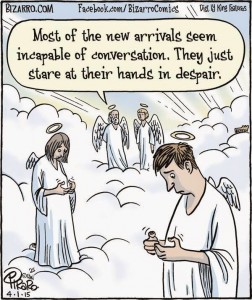The new buzz word of late, “worldview,” was first coined by the German philosopher Immanuel Kant, in the eighteenth century. The word he coined was: Weltanschauung. It is common for Germans combine words so Kant put two words together, welt, which means “world,” and anschauung, which can be translated into English as “conception,” “idea,” “opinion,” or “view.” James Olthuis defined a worldview as, “… a framework or set of fundamental beliefs through which we view the world and our calling in it … It is the integrative and interpretative framework by which order and disorder are judged; it is the standard by which reality is managed and pursued; it is the set of hinges on which all our everyday thinking and doing turns.” The late New Testament scholar, Marcus Borg, when reflecting on what a worldview is said, “One more crucial factor … a fifth lens … better understood as a “macro-lens” affecting all of our seeing. A worldview is one’s most basic image of “what is” – of what is real and what is possible.”[1] Dr. Borg goes on to define the two major categories into which all worldviews fall, “… worldviews fall into two main categories: religious and secular. For a secular worldview, there is only “this” – and by “this” I mean the visible world of our ordinary experience. For a religious worldview, there is “this” and “more than this.” The “more than this” has been variously named, imaged, and conceptualized; I will simply call it “the sacred.” A religious worldview sees reality as grounded in the sacred. For a secular worldview, there is no sacred ground.”[2] (For more on the definition of worldview, here)
(For more on the definition of worldview, here)
Nancy Pearcy offers the following contrast between the ‘secular’ and ‘sacred’ worldviews, ending with the important question that must be applied to all worldviews, “We often contrast “believers” to “nonbelievers,” but that can be misleading. Everyone believes something, in the sense that they must assume some principle as fundamentally true. Atheists often fail to recognize that they are in the same boat as everyone else. A common mantra on atheist websites goes like this: “Atheism is not a belief. Atheism is merely the lack of a belief in God or gods.” But it is impossible to think without some starting point. If you do not start with God, you must start somewhere else. You must propose something else as the ultimate, eternal, uncreated reality that is the cause and source of everything else. The important question is not which starting points are religious or secular, but which claims stand up to testing.”[3]
In brief, a worldview has been described as, not what someone sees, but what one sees with. This is of particular importance when one considers the overwhelming volume of information that we are subject to on a daily basis. For the Christian, keeping one’s worldview ‘eyeglasses’ firmly attached, is vital in the technological world of today. If we are seeing only with the eye, our Christian worldview will gradually be altered to the point that we may develop symptoms of what I call, the ‘myopic worldview syndrome.’ (More on this later) As Christians we must not only see with the eye, but through the eye of the lens of the Christian worldview. (For more on the Christian worldview, here)
Malcolm Muggeridge states, “The media in general, and TV [and now the internet/IPhones] in particular, are incomparably the greatest single influence in our society. This influence is, in my opinion, largely exerted irresponsibly, arbitrarily, and without reference to any moral or intellectual, still less spiritual guidelines whatsoever.”





